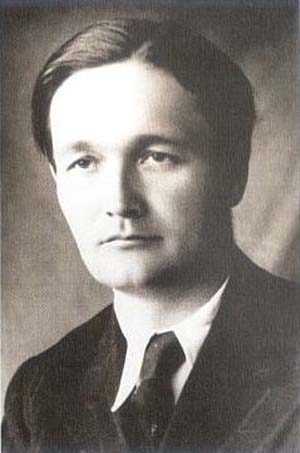The directory «Plots»
Németh László
(1901—1975)

Németh was born in Nagybánya (Baia Mare, now in Romania), where his father was a secondary schoolteacher. However, the family moved to Budapest in 1905. As a student at the Toldy secondary school, Németh gave a speech on May 1 during the short-lived Hungarian Soviet Republic, which caused a delay in him receiving his school-leaving certificate later the same year. He began to study Hungarian and French at Budapest University, but dropped out after a few months. He qualified in medicine and dentistry at Budapest Medical University in 1925, when he started work as a intern at St John's Hospital. His story 'Mrs Horváth Dies' won him a competition run by the prestigious left-wing literary journal Nyugat (West) in the same year. [?/] He joined the staff of the literary journal Napkelet (Sunrise) in 1927. During this period, he wrote numerous studies, reviews and essays, as well as fiction. He was appointed a school doctor in 1931. In the following year, he launched a one-man encyclopaedic journal called Tanú (Witness), which gained influence among young people and beyond the Trianon borders of the country. The writer Mihály Babits wrote a devastating piece of criticism of Tanú in Nyugat in 1933. In 1934, Németh launched another journal, Válasz (Response), with Pál Gulyás and Lajos Fülep. In 1934-5, Németh headed the literary department at Hungarian Radio and wrote articles for the evening newspaper Magyarország (Hungary). In April 1935, he took part in a meeting at the Zilahy Villa between the so-called populist group of reforming writers and the right-wing prime minister, Gyula Gömbös. When the reforms promised by Gömbös failed to materialize, Németh resigned from his radio post and broke with his partners in Válasz. Confining himself to literary works in 1935-9, his main subject was the disharmony between realities and the ideals of the new intelligentsia. His controversial Kisebbségben (In a Minority) appeared in 1939. From 1939 to 1942, he was on the staff of the literary journal Kelet Népe (People of the East), while writing for other papers. At the conference of populist writers at Balatonszárszó in 1943, he delivered a controversial speech that sought to analyse the probable situation after the war. In 1943, he resigned as a school doctor and bought a vineyard near Debrecen, where he tried unsuccessfully to realize his long-cherished plan for a people's college (Nékosz). After 1945, he moved with his family to Békés and then to Hódmezővásárhely, where he worked as a supply teacher in secondary school, still publishing in Válasz and Puszták népe (People of the Pusztas). He moved to Budapest in 1949. During the Rákosi years, he was only allowed to publish translations. On September 17, 1956, at the general assembly of the Writers' Union where the first secret elections were held since 1948, Németh and other party and non-party opposition writers were elected onto the new board. His play Galilei opened at the National Theatre in Budapest on October 20, 1956. On October 31, 1956, he was elected onto the Intellectual Steering Committee of the reconstituted National People's Party, which was now known as the Petőfi Party. He wrote articles in the party's paper, Új Magyarország (New Hungary), and in the Writers' Union's Irodalmi Újság (Literary News) on November 2, supporting the revolution, but warning against the danger of a swing to the right. In 1957, Németh was awarded the Kossuth Prize. The HSWP position paper on the népi writers, published in 1958, included criticism of Németh. He was among the founder members when the Writers' Union was re-established in 1959. His piece 'Journey', published at that time, shows acceptance of the Kádár system. However, several of his pre-1945 works were omitted from a collected edition begun in 1969.
Hungary, 1993, László Németh